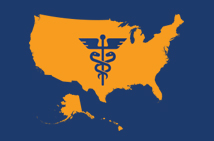What the Affordable Care Act Means to Communities of Color
August 21, 2013
01:50 PM EST
Ed. note: This is crossposted from hhs.gov/healthcare. See the original post here.
Recently, I traveled to Oakland, California, to participate in a town hall about how the Affordable Care Act is improving health and strengthening communities - especially communities of color that have long faced disparities in health and health care.
As the event was coming to a close, a woman in the audience stood up and asked if she could read a letter from her daughter. Her daughter hadn't been able to attend the event, she told us, but wanted to share her story with everyone.
She had started college a few years later than most, at the age of 22. During her freshman year, she was diagnosed with rheumatoid arthritis - a devastating discovery. But there was one source of relief: thanks to the health care law's provision enabling young people to stay on their parents' health insurance until the age of 26, she was able to stay on her parents' health plan, access the treatment that she needed, and continue her studies. And even though she has since turned 26, the opening of the new Health Insurance Marketplace - and the law's ban on discrimination due to pre-existing conditions - will provide her with new opportunities to secure affordable coverage.
The last excerpt that the woman read from her daughter's letter was directed to President Obama. Thank you, she wrote. The health care law had helped to save her life.
There are many ways we can measure the impact of the Affordable Care Act - from the more than 500,000 previously uninsured African American young adults who have gained coverage from a parent's health plan, to the 10.2 million uninsured Latinos who will be eligible for coverage through the Marketplace, to the 7.3 million African Americans and 8.2 million Latinos who already had insurance but can now receive preventive services, such as diabetes and cancer screenings, at no extra cost.
But perhaps the most powerful measure of the law's capacity to change lives and lift communities comes from real-life stories such as the one I heard in Oakland. Beyond the numbers and the reports, these may be the most telling testaments to what the Affordable Care Act means for our communities: security, peace of mind, the opportunity to lead a healthy life - and the freedom to pursue our dreams.
To learn more about the Affordable Care Act and the Health Insurance Marketplace, visit HealthCare.gov.
Dr. J. Nadine Gracia is Deputy Assistant Secretary for Minority Health and the Director of the Office of Minority Health at the U.S. Department of Health and Human Services.





